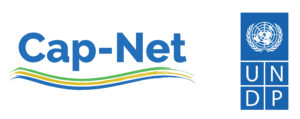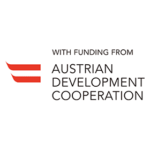



What you will learn
About This Course
Water resources management decisions are made by a multitude of actors working across various sectors and scales. Partnership and cooperation platforms are thus essential to ensure that these actors take coordinated decisions and work towards the same direction. The term Multi-Stakeholder Platform (or MSP) has become one of the most used umbrella terms to refer to such kind of mechanisms that unite stakeholders in a process of collaboratively solving problems or exploring opportunities. MSPs vary in their degree of formalisation, numbers of stakeholders involved, and scope of work, e.g., ranging from local multi-stakeholder consultation forums for improving WASH services to inter-governmental transboundary basin organisations.
Looking at the complexity of skills required to set up an effective MSP in the water sector, the Global Water Partnership (GWP), in collaboration, with Cap-Net UNDP, and Wageningen University and Research (WUR) are launching the “MSPs for Improved Water Governance” self-paced virtual course. The aim of this course is to enhance the skills of water-related professionals who wish to establish or help coordinate MSPs active in the water sector. The course is built around 6 core “MSP capability areas”:
- Analysing the context;
- Building an agenda for change;
- Managing information and knowledge;
- Financing;
- Sustaining effective communications;
- Negotiating and managing conflicts.
Participants
Who should take this course
This course is open to water-related professionals who are interested in setting up or helping support MSPs that aims to improve water governance. This course is directed specifically towards:
- Stakeholders and water professionals interested in SDG 6 and SDG 17
- Officials working with water-related ministries and regulatory agencies
- Catchment agencies and river basin organisations
- Water resource managers
- Members of civil society and non-governmental organisations
- Academics in water resources management
- Capacity developers active in the fields of IWRM, climate action, gender mainstreaming, stakeholder engagement, monitoring, and evaluation among other water-related fields.
Content and Course Structure
This MSP course consists of six different modules, each of them linked to a key capability area needed to establish and maintain an effective MSP in the water sector. Each module will be virtual and completely self-paced, containing related readings, additional learning resources, a discussion forum, and a quiz at the end of each module. Videos from a series of recorded online lectures are also available.
MODULE
1
Context Analysis
This module tackles “MSP Context Analysis” by exploring (water) MSPs to enhance participants “situational awareness” and examining MSPs in a conceptual and practical manner.
MODULE
2
Agenda for Change
This module familiarises participants with concepts and tools around making change through collective action, from a conceptual level down to hands-on project development.
MODULE
3
Knowledge Management
This module is aimed at examining how knowledge can be shared and leveraged between multiple organisations within the water domain.
MODULE
4
Financial Resource Mobilisation
This module familiarises participants with “financial resources mobilisation” by examining how changing trends in financing mechanisms, as well as new partnerships in the water domain can affect resource mobilisation.
MODULE
5
Effective Communication
This module focuses on the importance of effective communication as a key competence in facilitating multi-stakeholder processes towards encouraging meaningful participation, effective decision-making, and stimulating joint action by stakeholders who often have divergent interests and opinions.
MODULE
6
Negotiation and Conflict Management
This module is directed towards exploring conflict management and the principles of negotiation by addressing two levels of conflict; competing resource claims and tensions.
Course Approval Criteria and Certificate
Participants are welcomed to cover the contents of the six modules, based on their availability and time. Answering multiple-choice questions is a prerequisite for completing each module and advancing onto the next. Participants have up to three chances to obtain at least 60% correct responses. For each try, the platform will indicate the wrong answers.
After completing six modules, participants will be invited to answer a short feedback survey of the course. Upon completion of the survey, participants will then be able to download their certificate. Please note that participation in this course and access to the certificate has no cost attached.
Registration
This self-paced course will be open as of 1 July 2022. Enrolled participants must complete this course before 15 November 2022. Please note that beyond that day, participants will have access to the course content, but will no longer be able to advance in the modules.
We recommend that interested participants do not start the course beyond 1 November 2022, in order to have at least two weeks to successfully cover the course contents and receive the completion certificate.
Participants interested in taking this course are welcome to enroll by clicking the button "Apply now".
![]() Language: English.
Language: English.
![]() Structure: 6 modules.
Structure: 6 modules.
![]() Level: Introductory.
Level: Introductory.
![]() Content: readings, videos, forums.
Content: readings, videos, forums.
![]() Time: 15 hours.
Time: 15 hours.
![]() Total time dedication: 5 weeks.
Total time dedication: 5 weeks.
![]() Institutions: Global Water Partnership (GWP), Cap-Net UNDP, Wageningen University and Research (WUR)
Institutions: Global Water Partnership (GWP), Cap-Net UNDP, Wageningen University and Research (WUR)
![]() Certification: upon approval of quizzes at the end of each module.
Certification: upon approval of quizzes at the end of each module.